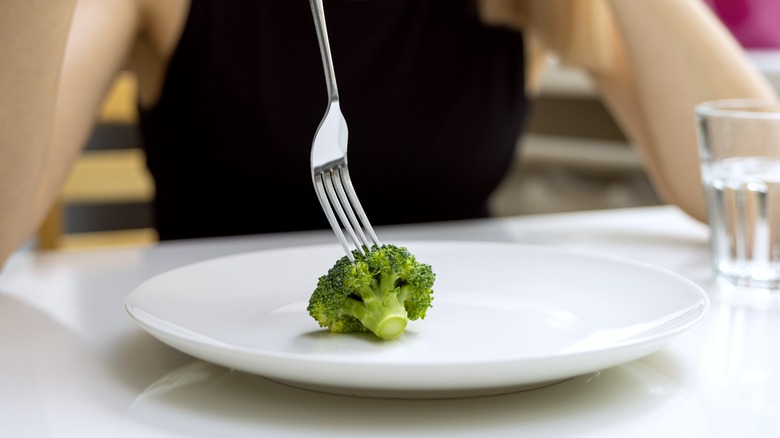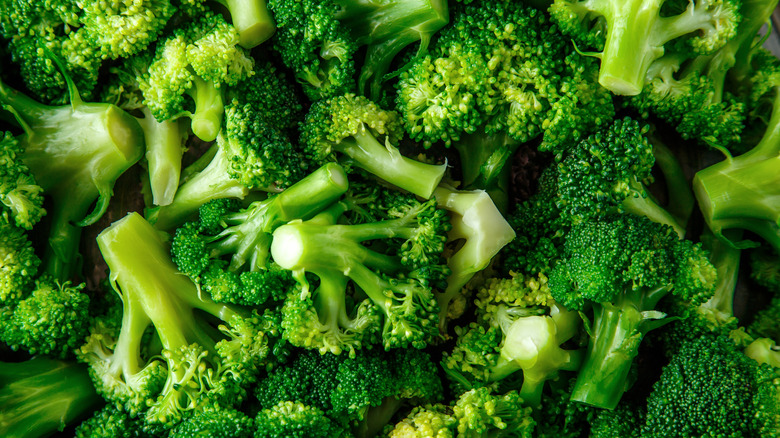
Your parents probably encouraged you to eat broccoli during your childhood due to its well-known health benefits. While it’s challenging to see a downside to consuming broccoli, it might not be suitable for everyone. As mentioned by Healthline, broccoli is a cruciferous vegetable that contains a high level of FODMAPs.
FODMAP stands for fermentable oligosaccharides, disaccharides, monosaccharides, and polyols, which are sugars that the small intestine does not absorb effectively, potentially causing digestive issues in some individuals (source: Johns Hopkins Medicine). If you experience bloating, diarrhea, constipation, or gas after eating broccoli, you may be sensitive to FODMAP foods. Although cooking broccoli can make it easier to digest, you might want to avoid digestive discomfort by choosing other healthy vegetables like spinach, lettuce, zucchini, and cucumbers.
The health benefits of broccoli

If you do not experience digestive problems from consuming broccoli, there are numerous reasons to include it in your diet. This vegetable is rich in vitamins, minerals, and other nutrients. “It’s easily one of my favorite vegetables, especially from a nutrition perspective,” said Brooke Scheller, Doctor of Clinical Nutrition and Director of Nutrition for Freshly.
According to Verywell Fit, broccoli contains folate, vitamin A, manganese, potassium, and various B vitamins. One cup of broccoli provides over 100% of your daily recommended intake of vitamin C and vitamin K. It’s also high in fiber, which is crucial for promoting fullness and aiding digestion. “Fiber supports your digestive system. It helps food move through your body effectively and also feeds the good bacteria in your gut that keeps you fit,” stated celebrity chef and certified nutritionist Serena Poon to Eat This, Not That!. So, the next time you have the opportunity to add broccoli to a meal, go for it.




